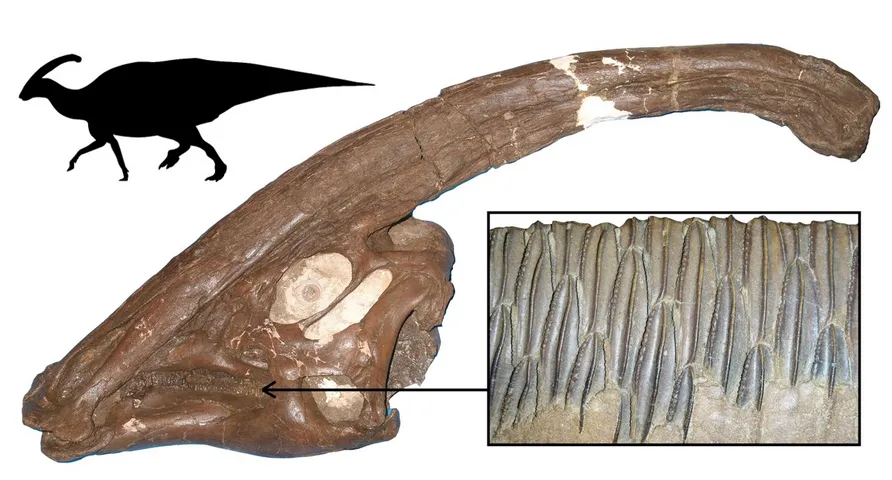When you think of dinosaurs the first one that springs to mind is probably the king of them all, the Tyrannosaurus Rex. But it might come as a surprise to learn that, despite movies like Jurassic Park suggesting (among other things) these meat-eating predators ruled the planet, plant-eating dinosaurs were way more abundant. In fact, for every T. rex skeleton found in North America there are hundreds of plant eaters discovered.
Researchers from the University of Bristol have chewing over the matter and think the secret to their success is revealed from careful analysis of their jaws and, erm, poo, as Dr Albert Prieto-Marquez who co-led the research explains: “Some of the immensely successful duck-billed hadrosaurs of the Late Cretaceous might have been eating flowering plants, but their tooth wear patterns, and especially close study of their coprolites - that's fossil poops - shows they were conifer specialists, designed to crush and digest the oily, tough needles and cones."
When dinosaurs roamed the Earth, plants evolved quickly, especially flowering plants in the Cretaceous period, but the jaws of the ornithopod dinosaurs like the hadrosaur didn’t show any changes in response this newfound source of new food. This suggests that they were much happier to munch on the harder, more ancient needles than new species of plants, which may have contributed to their success.

The findings also add credence to a controversial recent study that suggests the dinosaurs were already in decline before any asteroid impact finished them off.
“We had found that nearly all dinosaurs showed a downturn about 100 million years ago,” says Mike Benton, Professor of Vertebrate Palaeontology, “but the exceptions were two herbivore groups, the crested hadrosaurs and the horned ceratopsians. This study of dentition now confirms that hadrosaurs were bucking the overall downturn."
The research is published in Scientific Reports.
Follow Science Focus onTwitter,Facebook, Instagramand Flipboard
